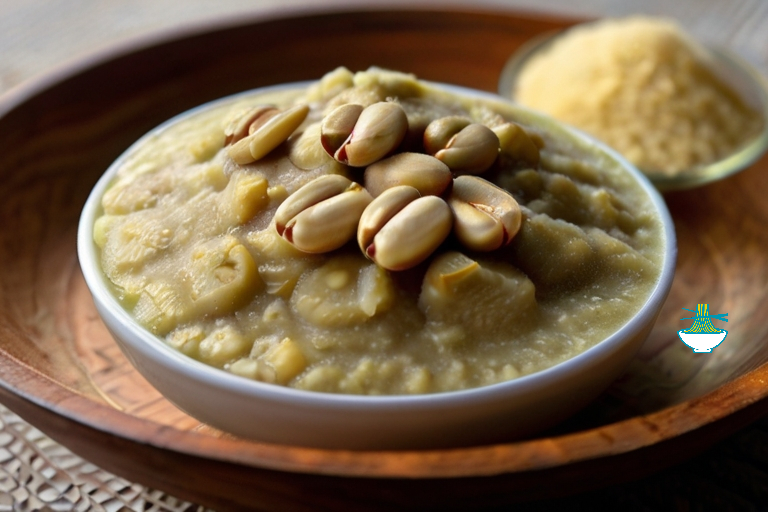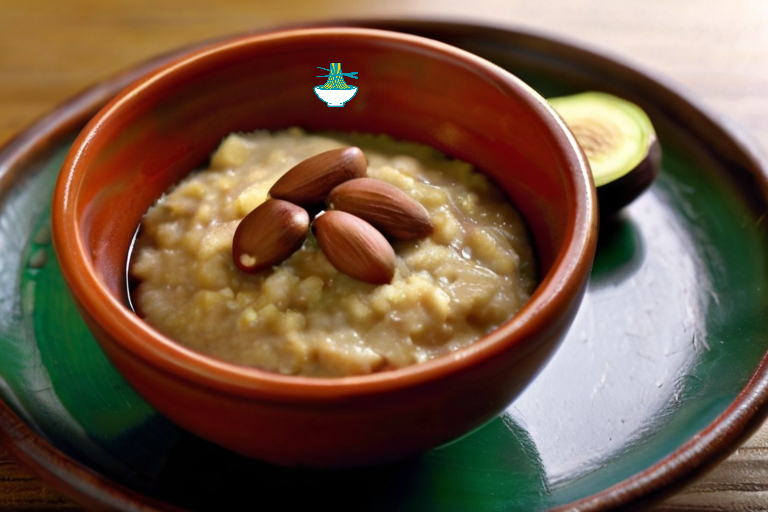Welcome to the flavorful world of Benin cuisine, where vibrant spices, fresh ingredients, and rich cultural heritage come together to create an unforgettable dining experience. Among the many delights that this West African nation has to offer, one dish stands out for its simplicity yet exquisite taste: Benin Pistache.
Pistache, also known as Fonio in some regions, is a cherished grain in Benin, prized for its nutty flavor and delicate texture. This ancient grain has been a staple in West African cooking for centuries, valued for its nutritional benefits and versatility in various culinary creations.
In this recipe, we will take you on a culinary journey to Benin, where we will explore the traditional preparation of Pistache, highlighting the authentic flavors and techniques passed down through generations. From the bustling markets of Cotonou to the tranquil villages of the countryside, Pistache holds a special place in Beninese cuisine, embodying the spirit of community and celebration.
Prepare to tantalize your taste buds with the harmonious blend of spices, the freshness of locally sourced ingredients, and the warmth of Benin hospitality. Whether you're a seasoned chef or an adventurous home cook, this Benin Pistache recipe promises to transport you to the heart of West Africa with every mouthful. So, let's embark on this culinary adventure and discover the magic of Benin Pistache together.
Ingredients:
- 1 cup groundnut paste (peanut butter can be used as a substitute)
- 1 cup millet or corn flour
- 4 cups water
- Salt to taste
- Optional: sliced onions, tomatoes, or other vegetables for garnish
Instructions:
1- In a large mixing bowl, combine the groundnut paste and millet or corn flour. Gradually add water while stirring continuously to achieve a smooth, lump-free consistency.
2- Transfer the mixture to a cooking pot and place it over medium heat. Stirring constantly, bring the mixture to a gentle boil.
3- Once the mixture starts boiling, reduce the heat to low and let it simmer, stirring occasionally to prevent sticking and ensure even cooking.
4- Continue simmering the mixture for about 20-25 minutes or until it thickens to a porridge-like consistency. Adjust the thickness by adding more water if necessary.
5- Season the porridge with salt to taste, stirring well to incorporate the seasoning evenly.
6- Once the porridge reaches the desired consistency and is fully cooked, remove it from the heat.
7- Serve the Benin Pistache hot, garnished with sliced onions, tomatoes, or other vegetables if desired.
8- Enjoy this comforting and nourishing traditional Beninese dish as a hearty breakfast, a satisfying lunch, or a comforting dinner.
Note: Feel free to adjust the thickness of the porridge according to your preference by adding more or less water. Additionally, you can customize the flavor by incorporating your favorite spices or herbs into the mixture.
Nutritional Values:
Here are the approximate nutritional values for the ingredients used in the Benin Pistache recipe:
1 cup groundnut paste (peanut butter):
- Calories: 950
- Total Fat: 80g
- Saturated Fat: 14g
- Sodium: 300mg
- Total Carbohydrates: 30g
- Dietary Fiber: 8g
- Sugars: 8g
- Protein: 40g
benefit:
- Excellent source of protein, providing essential amino acids necessary for muscle repair and growth.
- Rich in healthy fats, including monounsaturated and polyunsaturated fats, which support heart health and provide sustained energy.
- Contains vitamin E, an antioxidant that helps protect cells from damage and supports immune function.
- Provides minerals such as magnesium, potassium, and phosphorus, which are important for bone health and overall wellbeing.
1 cup millet or corn flour:
- Calories: 550 (millet flour) / 440 (corn flour)
- Total Fat: 4g (millet flour) / 2g (corn flour)
- Saturated Fat: 1g (millet flour) / 0g (corn flour)
- Sodium: 0mg
- Total Carbohydrates: 120g (millet flour) / 96g (corn flour)
- Dietary Fiber: 12g (millet flour) / 8g (corn flour)
- Sugars: 0g
- Protein: 12g (millet flour) / 8g (corn flour)
benefit:
- Millet flour: High in dietary fiber, promoting digestive health and aiding in weight management by increasing feelings of fullness.
- Millet flour: Gluten-free alternative to wheat flour, suitable for individuals with gluten intolerance or celiac disease.
- Corn flour: Rich in complex carbohydrates, supplying steady energy levels and supporting brain function.
- Corn flour: Contains antioxidants like zeaxanthin and lutein, which promote eye health and reduce the risk of age-related macular degeneration.
4 cups water:
- Calories: 0
- Total Fat: 0g
- Saturated Fat: 0g
- Sodium: 0mg
- Total Carbohydrates: 0g
- Dietary Fiber: 0g
- Sugars: 0g
- Protein: 0g
benefit:
- Essential for hydration, maintaining fluid balance, and regulating body temperature.
- Supports various bodily functions, including digestion, nutrient absorption, and waste elimination.
- Helps transport nutrients and oxygen to cells and remove metabolic waste products from the body.
- Promotes healthy skin, hair, and overall vitality.
Salt (to taste):
- Nutritional values vary based on the amount added and individual preferences. Generally, salt is low in calories and contains minimal to no macronutrients.
benefit:
- Regulates fluid balance and electrolyte levels in the body, aiding in nerve function and muscle contraction.
- Enhances the flavor of food, making it more palatable and enjoyable.
- Supports adrenal gland function and hormone production.
- However, excessive salt intake may contribute to high blood pressure and other health issues, so moderation is key.
Optional: sliced onions, tomatoes, or other vegetables for garnish:
- Calories, fat, carbohydrates, fiber, sugars, and protein content will vary based on the type and amount of vegetables used. Generally, these garnishes are low in calories and fat and contain various vitamins and minerals.
benefit:
- Provide essential vitamins and minerals, including vitamin C, vitamin K, and potassium, which are important for immune function, blood clotting, and heart health.
- Rich in dietary fiber, promoting digestive health and regularity.
- Contain antioxidants that help protect cells from damage and reduce the risk of chronic diseases such as cancer and heart disease.
- Add texture, flavor, and visual appeal to dishes, enhancing their nutritional value and overall enjoyment.
Please note that these nutritional values are approximate and can vary based on factors such as brand, preparation method, and specific ingredients used.


Comments